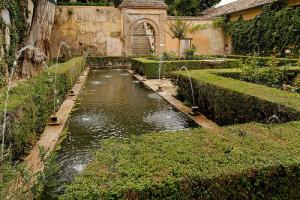
“And it came about, when God caused me to wander from my father’s house, that I said to her, ‘This is the kindness which you will show to me: everywhere we go, say of me, “He is my brother.” (Genesis 20:13)
In Genesis 12:1, God told Abraham to leave the land in which he lived and go to the place that He would show him. We looked at the fact before that Abraham decided to bring Lot, his nephew, along even though God had told him to leave his kindred behind. Now, in Chapter 20, we see another area where Abraham was reluctant to put his entire trust in what God had told him. By his own admission, Abraham had conspired with Sarah to deceive those who lived in the lands wherein God would lead them by telling them that Sarah was merely his sister, not his wife.
“Abraham said, “Because I thought, surely there is no fear of God in this place, and they will kill me because of my wife.” (Genesis 20:11)
When confronted by the King of Gerar, Abraham offers up these words as his reasoning: I assumed that you were all a bunch of lawless, wicked heathens who would kill me so you could have my wife. His concern was that a reverence for God was not in that place and that the people of that land would act according to their basest desires. Abimilech did prove to be a man of integrity (v.5-6), but even if he had not been, Abraham was wrong to use deception in order to protect himself. Even if the fear of God had been absent from the hearts of the people of Gerar, God Himself was able to protect Abraham and his wife. God is not dependent on the behavior and actions of others in order to bring His plans to fruition. Even if others are disobedient to the Lord and wish His people harm, this does not make Him unable to protect and defend His own. God may not be honored and respected in the places where we go, but we can be assured that He is in the particular spot where we stand. Even if God’s manifest presence is not already in a place, we know that He is once we arrive, if we have brought Him with us.
Abraham relied on a number of “backup plans” in his walk with God. Without a doubt, this great man of faith trusted God in a way that we can only hope to emulate. Yet we know that his faith grew over time as God stripped away more and more of these backup plans to the point that he had nothing else on which to rely but God Himself. Abraham’s faith in God would reach the point that when his son Isaac asked him as they climbed Mt. Moriah where the lamb was for the sacrifice, his response was: “God will provide Himself a Lamb” (Genesis 22:8). Abraham had attempted to use a backup plan to bring about the birth of a promised son, he had used a backup plan to ensure his safety in the lands through which he traveled, but when it came time to obey the Word of God and offer up his own son, he and Isaac went to the place of sacrifice alone. This incident in Gerar was a turning point in the life of Abraham after which he would trust in God’s provision alone.
And what of our own lives? Is our faith so deeply invested in the providence of God that, should He fail to deliver on His promises, we would have no other recourse? Or have we built a network of our own backup plans on which we rest comfortably should the power of God “fail?” Are we relying on Him or are we relying on our own resources, skills, and ingenuity? If so, we know that God will bring it to the surface, just as He did with Abraham. Will we put our faith in Him or in ourselves?
To Jesus Christ goes all glory. In service to Him,
Loren
[This post was originally published February 11, 2010]
**Unless otherwise indicated, all Scripture quotations are taken from the New American Standard Bible (NASB) © The Lockman Foundation and are used by permission.
[If you do not know the Lord Jesus Christ or you are not certain where you are headed when this life ends, I invite you to read the article “Am I Going To Heaven?“]
Advertisements &b; &b;